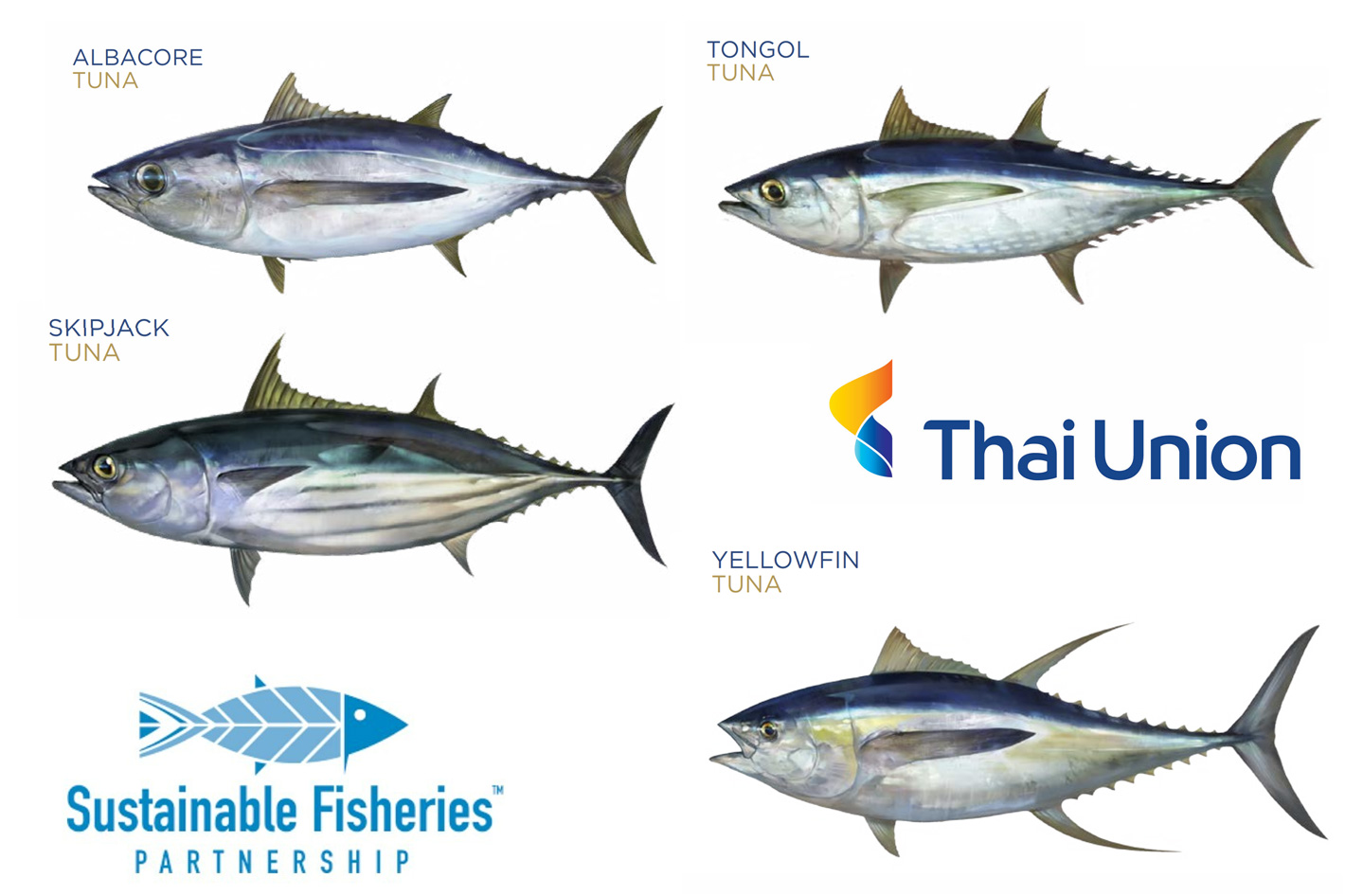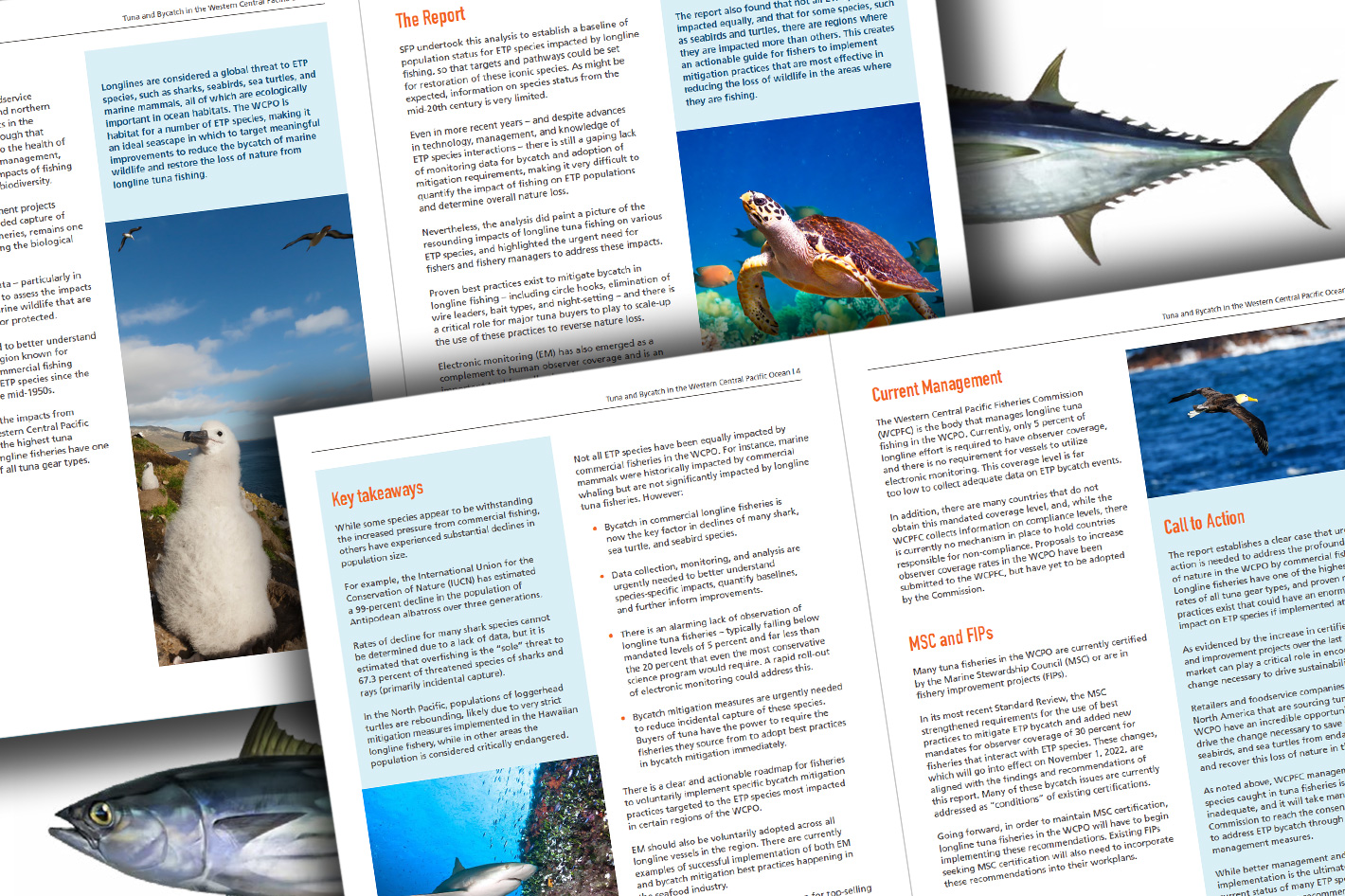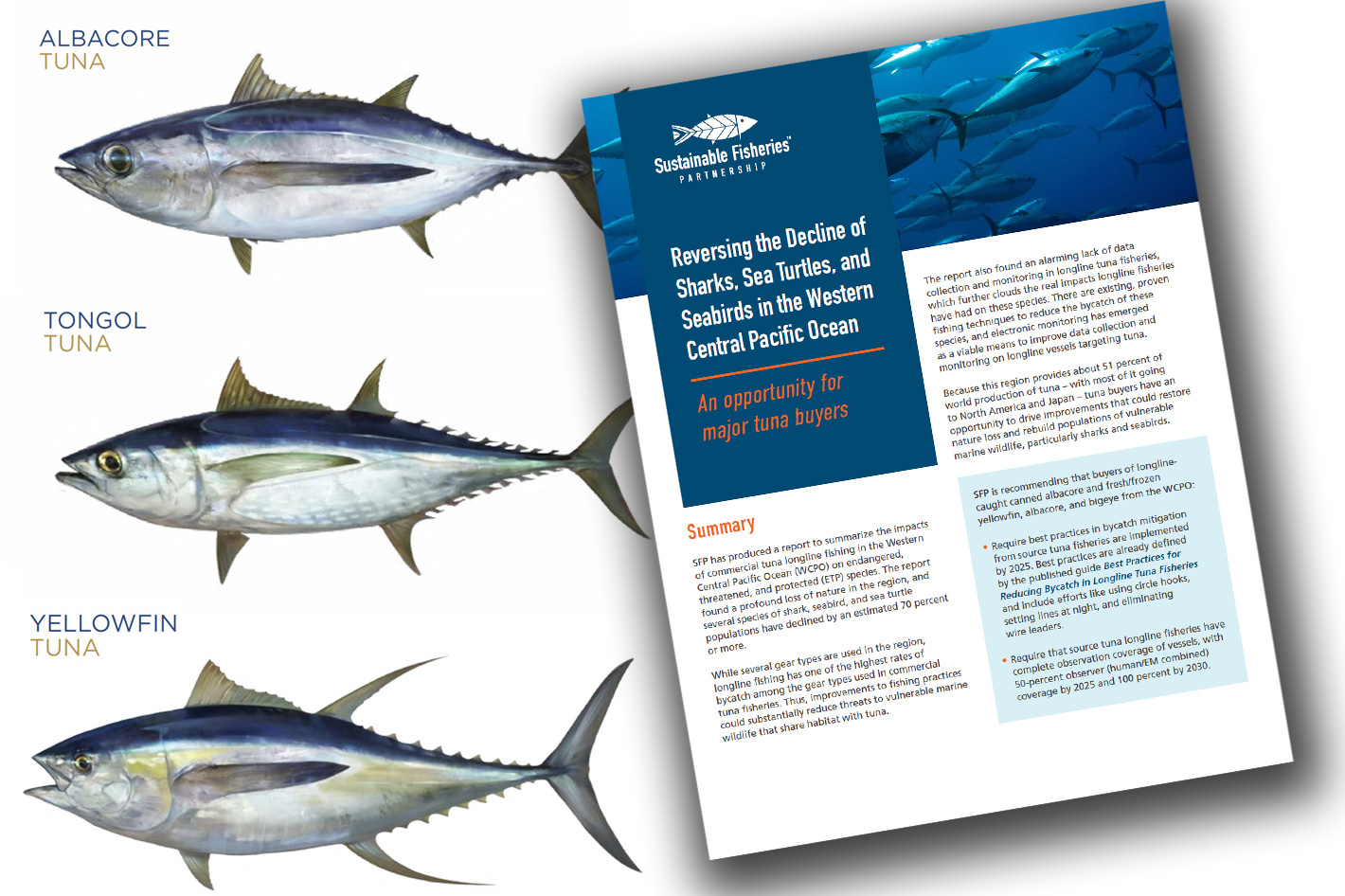A recent report by Sustainable Fisheries Partnership on the impacts of commercial tuna longline fishing has led the world’s largest tuna company to call for restoration of endangered species.
One of the world's leading seafood producers and one of the largest producers of shelf-stable tuna products, bringing seafood products to customers across the world for 45 years, the Thai Union Group PLC, recently announced its commitment to only source from vessels that are implementing best practices to protect ocean wildlife from bycatch.
The decision is based on research by Sustainable Fisheries Partnership (SFP) on the risks to sharks, seabirds, turtles and other marine wildlife in the fisheries that supply the company and an analysis by Key Traceability of Thai Union's tuna fishery improvement projects and in the highest risk fisheries that were identified in the audit.
"Environmental organizations are pointing to the biodiversity and species loss crisis that the planet is facing. The report by SFP notes the significant loss of ETP species in the Western Central Pacific Ocean region," noted Adam Brennan, group director, sustainability at Thai Union. "We want to do more to ensure that we are sourcing from vessels that are doing everything they can to avoid and reduce bycatch."
Known for top-selling, household-name tuna brands, including Chicken of the Sea and John West Thai Union highlighted a new 2030 commitment for its fisheries, building on its larger seafood sustainability efforts over the past seven years. Specifically, Thai Union will:
By 2030, all vessels to implement best practices to protect endangered, threatened and protected (ETP) species; and
Fulfill its existing commitment (by 2025) of 100 percent observer coverage (human or electronic) on tuna vessels through direct work with its suppliers and service providers.
 Leading the way for a more responsible industry
Leading the way for a more responsible industry
Through the creation of the SeaChange project, Thai Union has been looking for ways to improve not only its operations, but to also help the industry improve with them. From being involved in establishing 10 tuna Fishery Improvement Projects (FIPs) around the world, to working with prestigious names around the world, to help tackle modern slavery and prevent illegal, unregulated and unreported (IUU) fishing activities so consumers can enjoy wild-caught products in confidence of their provenance, SeaChange pursues its goal: to define a integrated plan of initiatives, organized into four programs, to drive meaningful improvements across the entire global seafood industry.
In 2016, Thai Union announced its Tuna Commitment with an aim to achieve a minimum of 75 percent of its own brands of tuna coming from fisheries that are either Marine Stewardship Council certified, or in a FIP by the end of 2020. They managed to achieve this goal in 2019, reaching a total of 79 percent of tuna volume sourced for Thai Union-branded products.
Since March 2021 Thai Union and The Nature Conservancy have been working together on a ground-breaking commitment, leading the way for a more responsible industry. The goal: to see that the tuna Thai Union produces is sourced from vessels that are confident in the way they conduct their fishing activities by permitting monitoring at sea. Thai Union’s SeaChange sustainability strategy is committed to addressing illegal, unrelated and unreported (IUU) fishing practices.
During the first year of the partnership, the two partners achieved the following major milestones:
The first of its kind and industry-leading electronic monitoring (EM) program focused on Thai Union’s EM program design, data and technical standards, and continual improvement for supplying vessels.
Thai Union increased coverage of EM on vessels the Group sources from, creating a baseline from which this will be monitored which includes annual reporting. Observer coverage, either EM or human, across the vessels that Thai Union sources tuna from was 71% by volume (of product sourced) in 2021. This continued to be monitored in 2022. The plan for installation of electronic monitoring equipment on 240 longline tuna vessels across five seafood supply companies operating in the Pacific, Atlantic and Indian Oceans has been finalized, and will be completed during 2023.
Both partners launched projects to expand the application of EM to support new fishery transparency initiatives, including using EM for trans-shipment monitoring, and how EM can support the human rights of safeguards on vessels.
Thai Union and TNC worked with stakeholders across the supply chain to improve transparency, including supporting the strengthening of the Marine Stewardship Council (MSC) Fisheries Standard and participating in groups such as the International Seafood Sustainability Foundation and the Global Tuna Alliance.
 The impacts of commercial tuna longline fishing
The impacts of commercial tuna longline fishing
TNC and Thai Union advocated for the importance of monitoring through engagement at Regional Fishery Management Organizations such as the Inter-American Tropical Tuna Commission (IATTC) and the Indian Ocean Tuna Commission (IOTC). Thai Union built multi-year technology strategies and partnerships with leading companies to advance the use of artificial intelligence and machine learning in EM workflows.
A recent report by SFP on the impacts of commercial tuna longline fishing in the Western Central Pacific Ocean on ETP species found a profound loss of nature and the decline of an estimated 70 percent of several species of shark, seabird, and sea turtle populations. This region provides more than 50 percent of the world's tuna production, most going to North America and Japan. As a result, tuna buyers are well-positioned to drive improvements to restore nature loss and rebuild populations of vulnerable marine wildlife, particularly sharks and seabirds.
Thai Union's "bycatch audit" was undertaken as part of SFP's Protecting Ocean Wildlife initiative, an international, industry-led effort to address marine wildlife bycatch. SFP conducted a review and assessment of Thai Union's source fisheries using existing sustainability data to determine risks, overlaps with the company's key products, and where the most impacts can be made to reduce ocean wildlife bycatch.
The research identified tuna longline fisheries as high risk for sharks, sea birds, and sea turtles, and recommends implementing more gear modifications to reduce the interaction rate and mortality risks associated with these fisheries. The research also found insufficient observer coverage in Pacific Ocean fisheries, consistent with Thai Union's commitment for 100 percent observer coverage in its tuna fisheries.
Key Traceability examined if best practices to reduce bycatch are being taken by vessels in Thai Union's fishery improvement projects (FIPs). The analysis found that many of these fisheries have documented actions around ETP management and meet or exceed the audit report recommendations.







